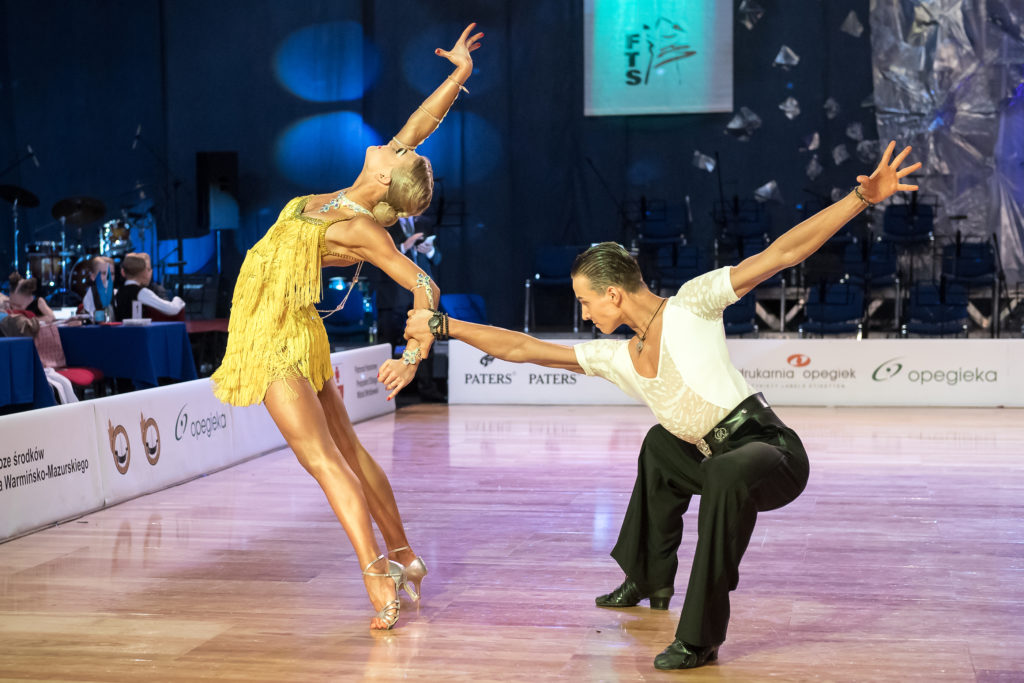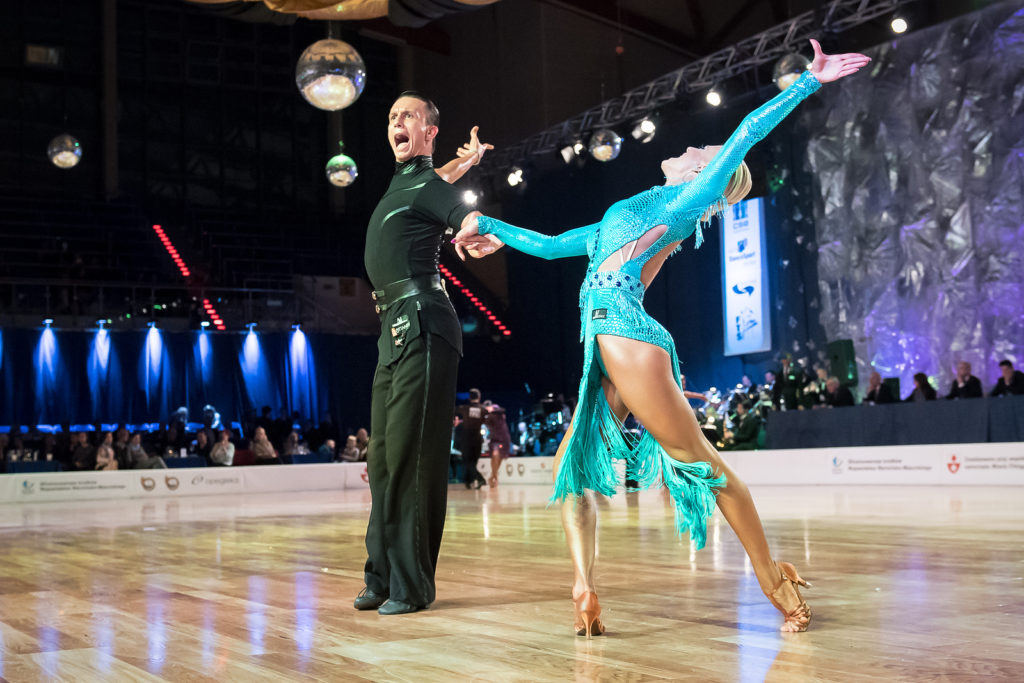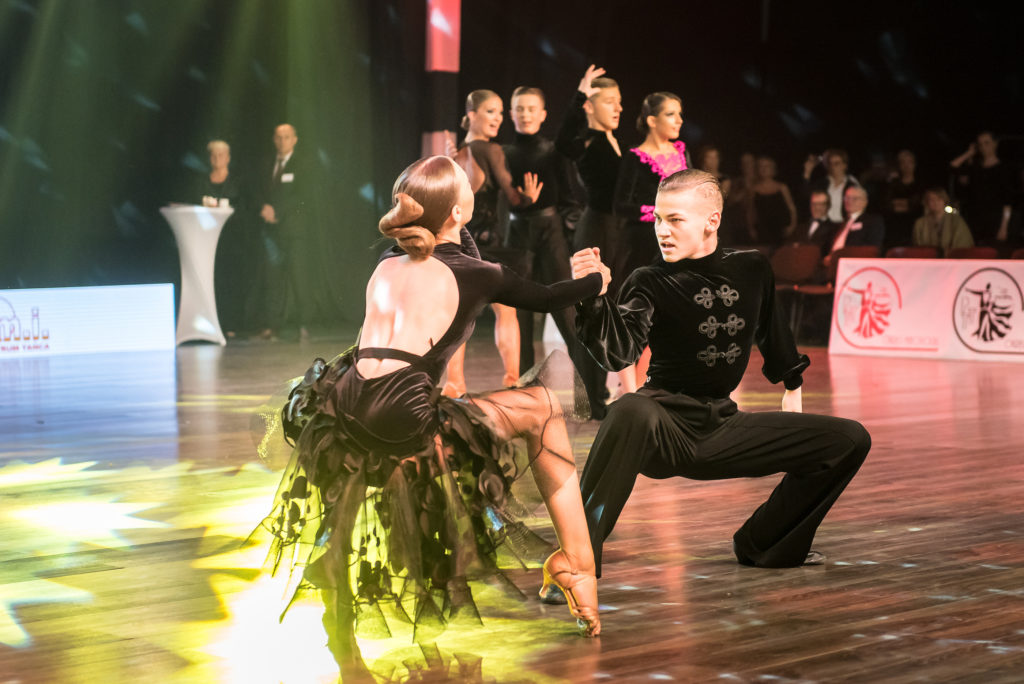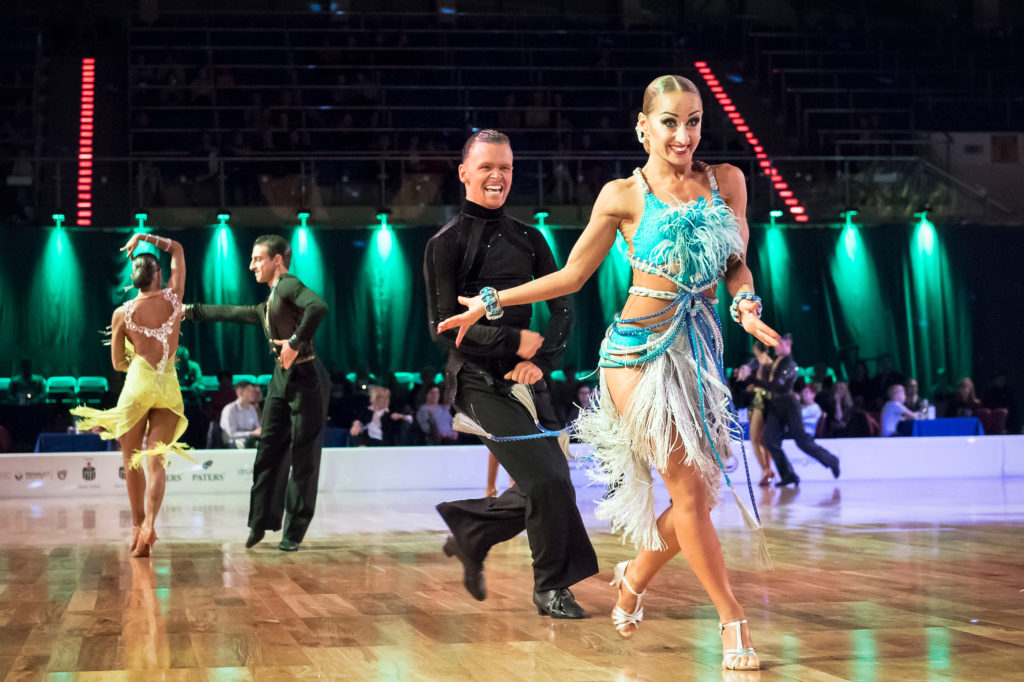Winning over Ballroom Judges
Imagine with me, if you will…
You and your partner are experienced professional dancers with successful careers, who have been dancing together for a long time, and you both have that unique ability to transition from one style of dance to another, because you are dancers, first and foremost, and not strictly Ballet or Modern or Tap or Jazz or Hip-hop or American Smooth or Rhythm or International Latin or Standard dancers. The very fact that you are multi-faceted means that you can draw on the flexibility and grace of your Ballet training, the playful quality and the groundedness of your Jazz, and the isolations of your Hip-hop dancing and apply those skills to your other dances to enhance your technique and add creativity to your choreography.
Having conquered other genres, you are now ready to start competing in International Latin, and while you know you are hot, you also realize it is unrealistic to expect first places out of the starting gate. After all, time is limited; the competition floor is often very crowded; there are other couples who have been out there longer, that the judges will be watching more; and maybe the judges don’t even know who you are yet, or else they are used to seeing you compete in another category and don’t realize yet that you are capable of switching. So, when none of the judges gives you a recall in your first competition, you are disappointed, but you decide it’s no big deal and that you’ll just keep practicing and making your dancing better.
Now imagine that you’ve been out competing for a few years; you have had plenty of coaching; you have tricks in your repertoire that no one else does; and the audiences love you. Maybe there are even moments, when you are dancing in front of the judges, that scream “finalist”. In spite of this, all of the judges are still consistently, across the board, not giving you any recalls in any dances, or else they are ranking you dead last.
It should be statistically impossible, and yet it happens sometimes, because Dancesport is one of those pretty sports, like Figure Skating or Gymnastics, where the judging is largely subjective. That is just the nature of the beast.
This can be very discouraging and make you want to retire or quit, but the worst thing you can do is let it get to you. It is okay to have a goal of being a national or world champion by a certain age, but if you don’t make it, that doesn’t mean you have to stop dancing. A goal should just be a mark for which you aim, not a be all, end all.
So, how should you handle it if something like this happens to you?
First, remember why you are dancing and competing in the first place. Hopefully, it is because you love it and can’t imagine your life without it.
Second, don’t put so much stock into what place you win or don’t win. Obviously, first feels great, but it is just a number. There will be times when couples who don’t dance as well place higher than you do. Your audience and supporters see and know, and they will still love you.
Third, while you shouldn’t be belligerent or disrespectful, don’t be afraid to ask judges for feedback, especially if you are consistently not getting recalls, which is tantamount to getting a zero. Why? Because, when you are being ranked zero anyway, you can’t place any lower; so, really, you can only go up from there. You might be surprised at the results.
What should you do with feedback?
Dance Comp Review gives a hilarious list of reasons why you might not have won, here: https://www.dancecompreview.com/why-you-didnt-win/
These are all in good fun, but some of them are, perhaps, not far from the truth, because judging is subjective; so, the best thing that you can do is to take feedback from judges constructively. For instance, if a judge tells you that they thought your timing was off in a particularly complicated Cha-Cha-Cha step, yet they see that it works, when you demonstrate it one-on-one, maybe you could try tweaking the step to make it more readable on the competition floor.
The feedback that can be taken more with a grain of salt is appearance-related feedback. Without delving into the academic field of Cultural Criticism in our analysis of it, sometimes you may receive criticism like the following:
“Your collar was too high”; or
“Your pants were too long”; or
“Your partner didn’t tan enough”; or
“Your partner had some hair come loose.”
Clearly, you should always have costume, make-up, and hair that are genre appropriate and look professional, but if you’re wearing the same shirt that all the other men are wearing, your neck is only as long as God made it. Moreover, tanning too much can also look bad, depending on your natural complexion, and some people are even allergic to some fake tanners. So, do the best you can; but, ultimately, the judges should really be focused more on your dancing, and so should you.
Don’t quit; keep dancing. Take criticism. It does get better. Sometimes, when you ask for feedback, the judges may even start scoring you. If they don’t, just have fun. You’re there because you love to dance. Dance for you.





